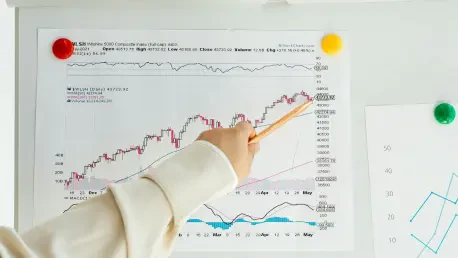
What happens when the world of cryptocurrency, once a Wild West of digital innovation, starts demanding the ironclad security of traditional finance? The stakes skyrocket, and players like Ripple are stepping up to meet the challenge head-on with bold moves. In a landscape where institutional trust

In an era where digital transactions dominate global commerce, stablecoins—cryptocurrencies pegged to stable assets like fiat currency—stand out as a disruptive force with the potential to redefine payment systems. With cross-border payments often burdened by high fees and slow processing times,

The cryptocurrency market is no stranger to dramatic swings, but few assets have captured attention quite like Chainlink (LINK), which currently hovers at a critical price point of around $15.14 after a staggering 32% monthly decline, raising a pressing question for investors and enthusiasts alike.

I'm thrilled to sit down with Kofi Ndaikate, a renowned expert in the fintech space with deep knowledge of blockchain and cryptocurrency trends. With a finger on the pulse of emerging technologies and market dynamics, Kofi has a unique perspective on how innovations like Internet Computer (ICP) are

In an era where blockchain technology is rapidly transforming financial landscapes, one project stands out for its bold ambition to merge decentralized finance (DeFi) with traditional markets. Imagine a world where everyday investors can own a fraction of iconic properties like Trump Tower, or

Setting the Stage for a Digital Revolution on Wall Street In the rapidly evolving world of digital assets, a staggering statistic emerges: the global blockchain gaming market is projected to reach $65 billion by 2027, fueled by innovations in NFTs and decentralized technologies. Amid this explosive